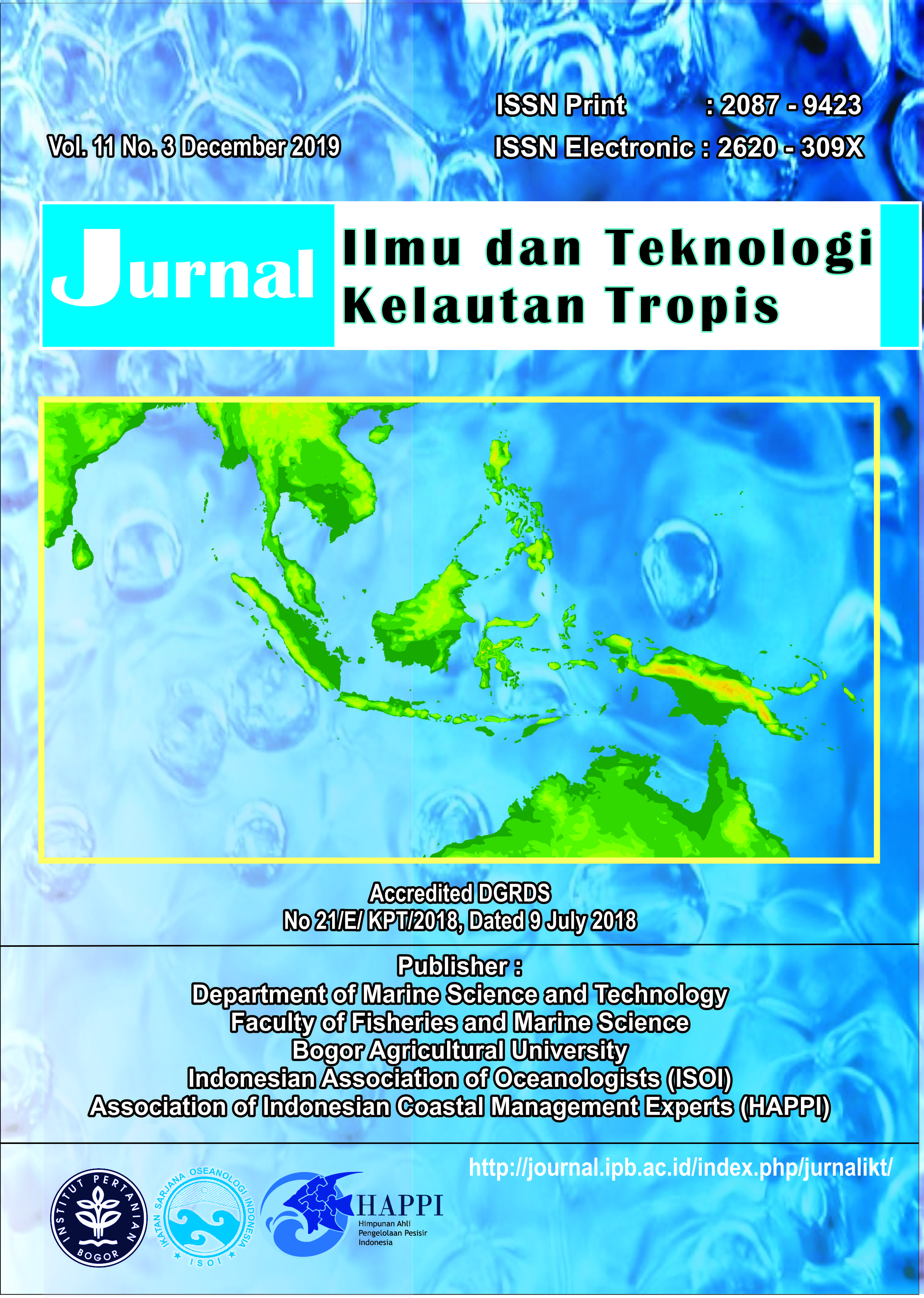THE INTEGRATED DEVELOPMENT STRATEGIC OF CAPTURE FISHERIES WITH BASED ON LOCAL SUPERIOR RESOURCES: CASE STUDY OF SQUID FISHERIES IN SOUTH BANGKA REGENCY
Abstract
Squid resources are the fisheries potention has important economic value in South Bangka Regency. Demand for this commodity in both fresh and processed forms is estimated to continue to increase in the future. This study aims to analyze the contribution of squid fisheries, analyze their development bases, and formulate development strategies in South Bangka Regency. This study used descriptive method, LQ analysis, and AHP method. During the period of 2009-2016, the production of squid fisheries in South Bangka Regency averaged 4187.87 tons with a contribution value of Rp87,736,058,000.00 annually. This squid production follows a polynomial pattern y = -192.1x2 + 1624.x + 1745 (R² = 0.289). The base area for squid fisheries development uses: (1) liftnet is Tukak Sadai District, Lepar Pogok District, and Toboali District, (2) boat liftnet is Pongok Islands District, and (3) squid fishing is Simpang Rimba District, Batu Betumpang District, Toboali District, and Lepar Pongok District. While the priority development strategy is the coaching of human resources for squid fisheries (priority I) and improved management of the squid fisheries business (priority II) in each base area.
Authors
This work is licensed under a Creative Commons Attribution 4.0 International License.
Jurnal Ilmu dan Teknologi Kelautan Tropis i is an open-access journal, meaning that all content is freely available without charge to the user or their institution. Users are allowed to read, download, copy, distribute, print, search, or link to the full texts of the articles in this journal without needing to request prior permission from the publisher or the author.
All articles published by Jurnal Ilmu dan Teknologi Kelautan Tropis are licensed under the Creative Commons Attribution 4.0 International License. This allows for unrestricted use, distribution, and reproduction in any medium, provided proper credit is given to the original authors.
Authors submitting manuscripts should understand and agree that the copyright of published manuscripts is retained by the authors. Copyright encompasses the exclusive rights of authors to reproduce, distribute, and sell any part of the journal articles in all forms and media. Reproduction of any part of this journal, its storage in databases, and its transmission by any form or media is allowed without written permission from Jurnal Ilmu dan Teknologi Kelautan Tropis.


